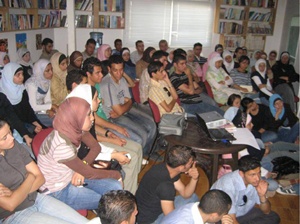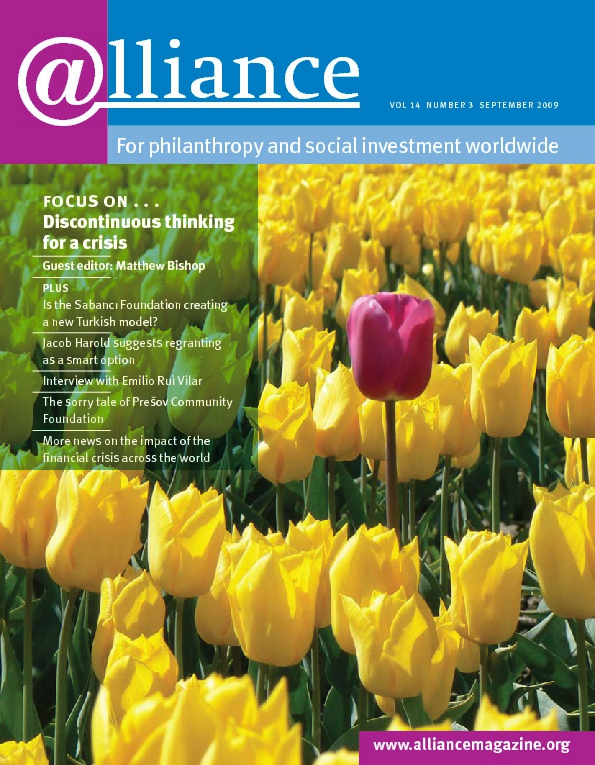While the current crisis is exacerbating the difficult conditions of marginalized Arab communities, the urgency of their situation has been apparent for decades. Yet efforts to address their chronic problems have been consistently misguided, charity-oriented in their thrust, mostly state-sponsored, ill-studied and patronizing.
It has long been clear that we need a paradigm shift in this region. We have to build an ecosystem that nurtures empowerment, mutual interests, partnerships and shared values. We must actively champion grassroots entrepreneurship in our search for sustainable solutions.
Unfortunately, the Arab world has not been kind to entrepreneurs. Here, the state reigns supreme, educational systems insist on rote learning, and the private sector, timid and fragmented, follows the lead of government. The oil ‘curse’, as it is commonly (and appropriately) called, has made the region even more dependent on the state. Flush with money, governments have been able to monopolize the management of national resources and dictate the development agenda and its implementation. The results are written all over our polities: today, our educational, economic, social, environmental and healthcare agendas are public sector driven and our workforce is the product of the state’s vision rather than the labour market’s demands. Our human capital is either underutilized, mostly in government jobs, or simply out of work.[1]
Change will not happen if the development arena remains the preserve of the state. Civil society has to redefine itself to include the private sector as a major pillar of development, and the private sector must step up and define its purpose beyond profit maximization. This is about strategic philanthropy; it is about sustainability, about long-term vision versus a short-term approach, about nurturing a stakeholder, as opposed to a shareholder, mentality. Simply put, strategic philanthropy is about transforming the private sector’s role in development from one that relies purely on financial generosity to one that cultivates activism and engagement.
This is easier said than done. Decades of the state’s smothering embrace have left the private sector weak and eager for the government’s good graces. Even now, when it clearly commands a larger share of the Arab world’s economies, the private sector has yet to contemplate a meaningful presence in the development field. However, things are starting to change. There are stirrings here and there, confident if still modest moves by private business to think of philanthropy from a strategic perspective. One such effort has recently begun to take shape in Jordan.
The model, which was conceived by a group of Jordanian entrepreneurs, puts the entrepreneurial spirit at the heart of development. It places innovative solutions, partnerships, engagement, advocacy, activism, a sense of ownership and, most importantly, perseverance, agility and flexibility in implementing unconventional practices at the centre of its endeavours.
Ruwwad for Development
 Ruwwad for Development, or ‘Entrepreneurs for Development’, is a community empowerment organization started four years ago in Jabal al Natheef, a marginalized community of 100,000 that sits on the edge of Amman, the capital of Jordan. Ruwwad, tailor-made to meet the community’s needs and demands, started out as a simple renovation project for the local 50-year-old school, then evolved to include summer programmes in the school, before finally growing into the primary development organization that it is today.
Ruwwad for Development, or ‘Entrepreneurs for Development’, is a community empowerment organization started four years ago in Jabal al Natheef, a marginalized community of 100,000 that sits on the edge of Amman, the capital of Jordan. Ruwwad, tailor-made to meet the community’s needs and demands, started out as a simple renovation project for the local 50-year-old school, then evolved to include summer programmes in the school, before finally growing into the primary development organization that it is today.
In partnership with the government, Ruwwad established a health clinic, a police station and a post office in Jabal al Natheef. It introduced a nursery to assist working mothers, an interactive library for children, and a youth empowerment programme which currently provides scholarships to more than 300 university students in return for four hours of volunteer work a week across the community. Furthermore, a two-hour weekly debate and discussion session about various issues of interest to the students, during which they feel empowered and safe to talk about their fears, hopes and dreams as well as learn the tools and methods to tackle them, became the soul of the programme.
The private sector engaged by offering internships and employment opportunities, and the Ministry of Labour opened a labour office for career consulting. At present, the students are looking at establishing with the founders a micro-venture capital fund to provide capital for their entrepreneurial endeavours. In addition, English classes plus IT classes and internet access have been offered free to the students in order to better equip them with the skills needed for a demanding labour market. Arts and culture are also important components of this initiative. Free dancing, music and drawing classes are offered, as well as theatre and a ceramics workshop. A legal aid office was even set up to give free consultation and assistance to residents of the community.
Crafting an entrepreneurial ecosystem
But our goal goes beyond education, job opportunities and training. It is about helping to craft an entrepreneurial ecosystem, where our younger generations can develop the habit of critical thinking as well as feeling empowered to take risks and accumulate the skills and tools needed to enable them to have access to capital, training, mentorship and a vast network of professional guidance, potential partners and investors.
When we started operating in East Amman, the ‘competition’ was limited to some ideological NGOs with political agendas. However, now that the private sector is beginning to provide a successful alternative model for development based on partnerships, we are witnessing the emergence of young entrepreneurs who have a sense of ownership, are ready to actively pursue their dreams for a better future, and are eager to partner with us and others to reach out to more communities and replicate our model beyond their borders. Ruwwad is currently starting operations in Egypt, Palestine and Lebanon among other countries
A new paradigm of development is thus born. It is still young, and it is too early to judge its effectiveness and sustainability, but it is here and it is engaging all stakeholders in a participatory manner that empowers both the community and its youth and makes entrepreneurs and the private sector strategic partners in development.
1 World Bank Report (2008) The Road Not Traveled: Education reform in the Middle East and North Africa.
Fadi Ghandour is CEO of Aramex. Email fadi.ghandour@gmail.com
Caption Ruwwad students participating in ‘Dardashaat’, the two-hour weekly debate and discussion session where students share their concerns, challenges and dreams.


Comments (0)